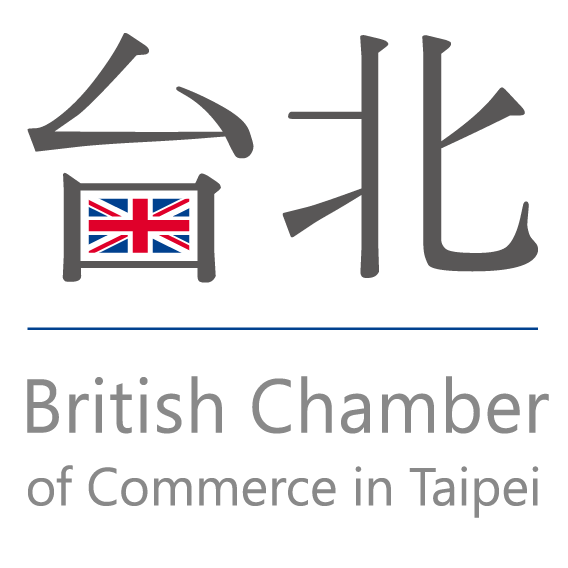Eiger | Essentials for British Companies Doing Contests and Promotional Giveaways in Taiwan

When companies hold promotional contests and giveaways in Taiwan, it’s important to know key personal-data and fair-trade rules so that you don’t run into trouble. Here is a quick overview to what you need to know!
Contests and promotional giveaways are a common way to highlight a brand to new audiences, get contact information from potential consumers, and create lasting positive impressions. Businesses often offer consumers the opportunity to participate in competitions or promotions as a reward, creating simultaneous opportunities for directly or indirectly marketing products and services. These may be chance-based or skill-based, or might simply be giveaways. Such activities will frequently be regulated to protect consumers, competitors, and the overall marketplace.
In recent years, a massive increase has occurred in the importance of Taiwan’s personal data protection rules for these giveaways, because a key part of these promotions is collecting potential customer data. We therefore provide some guidance for companies seeking to engage in such business activities in Taiwan by responding to some frequently asked questions.
1. What personal data protection requirements must companies comply with?
The collection and use of entrants’ personal data must comply with Taiwan’s Personal Data Protection Act (PDPA).
The PDPA requires the satisfaction of any one basis from a list of enumerated legal bases for collecting personal data (from Article 19 of the PDPA). Relevant among these bases are:
a. where there is a contractual or quasi-contractual relationship between the [collector] and the data subject, and proper security measures have been adopted to ensure the security of the personal data;
b. where the rights and interests of the data subject will not be infringed upon; and
c. where consent has been given by the data subject.
At the time of collecting the personal data, the collector must disclose to the data subject the information set out in Article 8 of the PDPA. This means:
a. the identity of the collector;
b. the purpose of the collection;
c. the kinds of personal data to be collected;
d. the time period, territory, recipients, and methods of which the personal data is to be used;
e. the data subject's rights under Article 3 and the methods for exercising such rights; and
f. the data subject's rights and interests that will be affected if he/she elects not to provide his/her personal data.
Data subjects’ rights under Article 3 are:
a. the right to make an inquiry of and to review his/her personal data;
b. the right to request a copy of his/her personal data;
c. the right to supplement or correct his/her personal data;
d. the right to demand the cessation of the collection, processing, or use of his/her personal data; and
e. the right to erase his/her personal data.
What this means is that in the course of running a contest, you may get a flood of responses from potential customers, but you must take care to inform them about what will be done with their data, and you must protect that data and respond appropriately if they ask to be taken off your lists.
2. Are licenses or permits required for running contests?
There is no registration or licensing requirement for a business to operate a sweepstakes or promotion. The Taiwan Fair Trade Commission (FTC) has issued Regulations Governing the Amount of Gifts and Prizes Offered by Businesses (the Regulations). These regulate most, but not all, promotions and competitions offered to consumers. The FTC does not define or even use the terms “sweepstakes” or “promotions.” It instead has adopted the term “prize-giving activities,” which is broad enough to encompass a range of behavior. This term also augments the FTC’s already broad jurisdiction under the provisions of the Fair Trade Act (FTA) for examining any conduct that could constitute unfair competition.
3. Are chance-based draws permitted, and if so are there any restrictions?
The FTA and related legislation do not distinguish chance- or probability-based contests and promotions from other types. Chance-based draws must be available without their own entry fees to avoid running afoul of the Criminal Code prohibitions on gambling and unlicensed lotteries. These types of contests can, however, require the purchase of a product or service. If the probability that entrants will win is high, the competition will be deemed a gift promotion under the FTC’s Regulations and be subject to limitations on maximum gift value. If the probability that entrants will win is low, the competition will be deemed a prize-giving activity and be subject to limitations on maximum prize value – both individually and regarding annual overall amounts. These limitations will be discussed further below.
4. Are there any restrictions on skills-based contests?
Taiwan’s FTA and other applicable legislation do not distinguish between skill- and probability- based contests and promotions.
5. What restrictions exist on the types of prizes one can give?
Alcohol and tobacco fall under special restrictions regarding their use in promotions and competitions, as well as advertising. The FTC also requires that companies fully disclose and provide accurate details of prizes in competitions. Restrictions based on value will be discussed below.
6. Are there any restrictions on the value of the prizes given?
The FTC Regulations limit total annual prizes given away by a business in prize-giving activities such as raffles. The limits are based on the company’s annual sales in Taiwan during the previous accounting year:
Annual Sales | Maximum Total Annual Value of Prizes |
More than or equal to NT$3 billion | NT$600 million |
Between NT$750 million and NT$3 billion | 20% of sales |
Less than or equal to NT$750 million | NT$150 million |
When a business conducts a prize-giving activity, the value of the highest prize shall not exceed NT$5 million.
The FTC limits the value of promotional gifts. When a business promotes a product or service by giving consumers a gift, the maximum value of the gift must be limited to 50% of the value of the product or service if the product or service is valued at NT$100 or more. If the product or service is valued at less than NT$100, the maximum value of the gift is NT$50. The value of the product or service should be determined by the “reasonable market price that a consumer would have paid at the time of the promotional activity.” The value of the gifts should be determined by using the same standards as for prizes.
7. Are there any minimum age entrance requirements and any restrictions on contests dependent upon age?
Until statutory amendments lowering the legal age to 18 enter effect in 2023, the age of majority in Taiwan is 20 years old. Minors under the age of seven have no capacity to enter into a legal relationship, unless it’s a purely legal benefit or a necessity based on the person’s age, status, and daily life. In the case of a minor acquiring a benefit, however, it is possible for a promotion to be enforced against the party offering the benefit. In other words, although minors are considered too young to enter into most contracts if they win a contest or otherwise comply with the terms for a promotional giveaway, the company will normally have to give them the prize if the company does not limit the age for winners or participants.
8. Can winners be foreign nationals?
While Taiwan law does not allow for discrimination based on nationality, ethnicity, or birthplace, it is common for promotional contests and giveaways conducted within Taiwan to restrict entry (and thus winning) to persons residing in Taiwan. If the goal is to reach consumers living in Taiwan, of course that restriction can be deemed reasonable – e.g., foreign nationals and Taiwanese residing within Taiwan can win, while those living elsewhere in the world cannot. That said, many global brands also run global or regional giveaways and can always choose to send prizes without geographic restrictions if they wish to. For a foreign national within Taiwan to win a prize will not be deemed a violation of their work permit, although the foreign national may have tax obligations if the prize value is substantial.
9. Are there any specific publication requirements, such as publication of the contest terms and conditions in certain media? Must the names of the contest winners be published? What language must be used?
No formal “publication of winners” procedure exists but a “full disclosure” obligation requires disclosing the process for determining the awards. The nature/form of the notice would need to be identified in the terms and conditions. There must be full disclosure of the entrance rules including the number or scope of entrants, duration, quantities, criteria for and methods of selection of winners, and income tax, withholding tax, and other tax obligations, as well as the means and date of any prize drawings. Any attached conditions, burdens, or other restrictions should also be clearly indicated. In light of Taiwan’s personal data protection laws (discussed in further detail below), the use or disclosure of winner names, photos or other identifying information must follow the appropriate rules for handling personal data.
The obligation of full disclosure serves to ensure that participants in a promotion or competition have a complete and clear picture of the terms and conditions of the event itself. We cannot see this obligation being satisfied locally by providing the terms and conditions in English only for promotions operated from within Taiwan. Traditional Chinese characters are used in Taiwan.
10. Are there any redraw requirements in the event that a prize remains unclaimed for a set period of time?
No. This would be subject to the operator’s decision, and, if applicable, should be provided in the terms and conditions for the competition.
11. Are there any other significant requirements relating to the running of such contests?
There are no “skill test” requirements for gift and prize promotions. The applicable law does not require notary oversight to ensure competition fairness. It is important, however, to verify and supervise the fairness of a competition. Businesses need to be able to prove the fairness of the competition if any complaints are raised.
If the contest is run out of a foreign jurisdiction, there is no obligation on the part of the operator to withhold taxes on the value of the prize if a Taiwanese citizen or resident wins. If the contest is conducted from within Taiwan, then there would be an obligation on the part of the operator to withhold taxes on the value of the prizes.
- By John Eastwood, Wendy Chu and Nathan Snyder
- John Eastwood is the managing partner of our member, the Eiger law firm and a lawyer with extensive experience advising companies on corporate and commercial issues. Wendy Chu is a senior associate and Nathan Snyder an associate in the firm.
